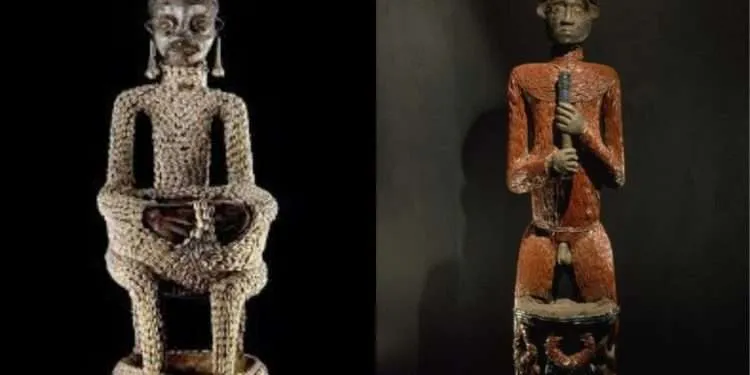Some civil society organisations in Cameroon have expressed concern that communities in Cameroon where artefacts were looted during colonisation are not showing interest in their return and restitution.
The information is the content of a report released recently by the CSOs that met last month to deliberate on the role of CSOs in the return of stolen artefacts.
The CSOs noted that, aside from demonstrating a lack of interest in the restitution process, the communities that are supposed to be the beneficiaries equally do not understand their history, making the process difficult.
“The communities do not have a complete and in-depth knowledge of the history of the peoples or the objects and are not all aware of the issues at stake in the restitution process currently underway.
“Some see no value in it, others see opportunities for gain, and still others see it as a gift from the West. It is therefore important to revive the memories of our colonial past and its consequences,” the CEOs said, adding that collaboration with universities would enable research to fill this gap.
Most of the artefacts were stolen by Cameroon’s first colonial master, Germany.
A glaring example is the Ngonso of the Nso people of the Bui Division; the Afoakom of the Kom people and the Lefem of the Bangwa people.
These cultural and traditional artefacts are in Western museums, and people pay huge sums of money to see them.
“In Vienna, there are almost 3,514 objects from Cameroon,” the CSOs said.
According to them, the German Government has shown strong determination in the restitution of these objects, but Cameroon has yet to benefit from them like other African countries.
“The Germans signed numerous treaties with Cameroonian communities.
Most of the heritage held in museums in Germany comes from the chiefdoms.
“There is an old law on the restitution of property, applied in a discriminatory manner by Germany, and Cameroon has not benefited from it. The current government in Germany is in favour of the restitution of objects, an attitude that could change if there is a change of government,” they said.
Nigeria and Uganda, among others, have retrieved their artefacts from British museums.
In 2022, Germany said it was going to return artefacts stolen from Cameroon, Tanzania, and Namibia during colonisation.
However, it is impossible to discuss the restitution of objects without talking about colonisation.
Re-contextualising restitution within the processes of decolonisation, according to the CSOs, can lead to other useful commitments that transcend the current divisions in Western societies and give greater responsibility to Cameroonian actors.
So to reclaim the artefacts, the CSOs said Cameroonian civil society organizations have a major role to play in supporting process.
“Information, awareness-raising, mediation, advocacy, dialogue between stakeholders, and support for community involvement are all areas in which civil society can play a part in this process,” they said.
However, there has been some inter-ministerial dialogue on how to retrieve the artefacts.
“A Swiss-Cameroonian dialogue on the restitution of Cameroonian artefacts will be held in Basel, Switzerland, from November 11 to 15, 2024. Cameroonian civil society intends to use this forum to continue its advocacy work.
“The German government is planning a meeting in Cameroon shortly with the stakeholders in the restitution process and also intends to involve Cameroonian civil society,” they said.



